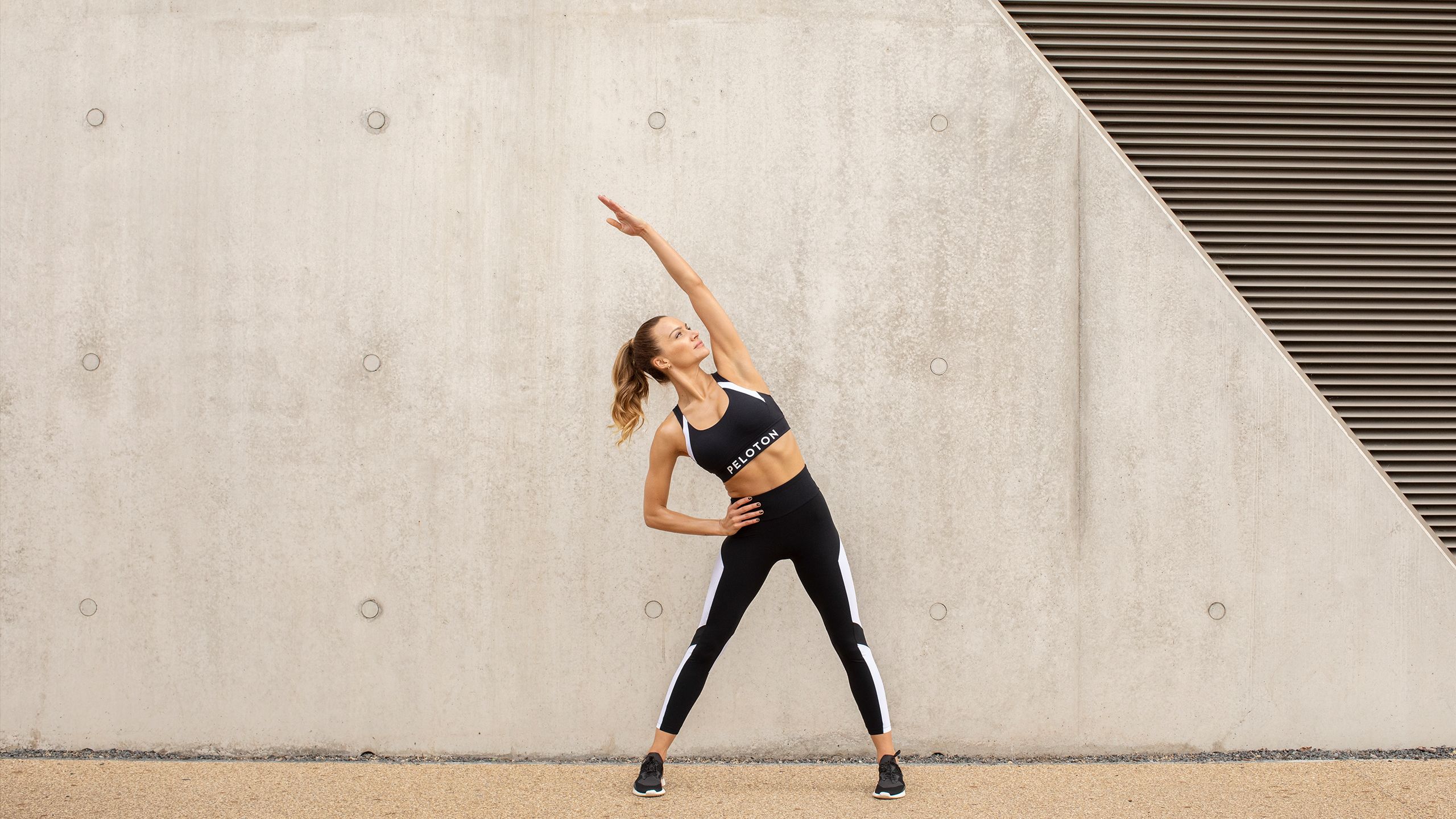
Everything You Need to Know About Exercise, Sleep and Stress
Create a virtuous cycle to support your health.
By Anne Roderique-Jones•
Everyone knows that exercise is good for the body and mind, but during uncertain times a workout routine can be impeded by daily stressors—causing sleep to be interrupted (or not happening at all) which makes it hard to keep up your energy levels and stay fit and healthy. We know that exercise is part of a virtuous cycle, but how can you get back in the habit when everything feels out of whack? We talked to a leading sleep expert to break down the science of sleep and stress, and how you can break the spiral and get back into a positive exercise cycle.
Sleep Is Not a Luxury
Shelby Harris, PsyD, the author of “The Women’s Guide to Overcoming Insomnia: Get a Good Night’s Sleep without Relying on Medication” and the Clinical Associate Professor of Neurology and Psychiatry at Albert Einstein College of Medicine, explains that a lack of sleep negatively impacts nearly everything that is important in life. “Your well-being, quality of life, emotional regulation, cognition, energy, motor control, appetite regulation, coordination, immune system and memory are some of the many things that are negatively affected. In short, sleep is just as important as exercise and a proper diet.”
So, You’re Stressed Out...
Anyone who’s ever been stressed out knows that a good night’s sleep can feel impossible—especially in the midst of a pandemic. Harris says that chronic stress leads to increased cortisol levels, which makes us have more difficulty in turning off to actually hit the sack. She says that, “When we are sleep deprived, we are tired, we crave high fat, high-sugar foods for instant energy. The problem is, these foods lead to quicker crashes, more fatigue, and more disturbed sleep in the long run.”
Which Leads to a Lack of Motivation for Exercise...
Sleep is crucial for efficient workouts. Harris explains that during the deeper stages of sleep, Human Growth Hormone (which is produced by the pituitary gland and released into the bloodstream) is naturally released. “This aids in strengthening bones, repairing muscle, and converting fat to fuel; less sleep leads to reduced HGH levels, impacting the speed from which you recover from a tough workout session,” She adds that, “sleep deprivation frequently leads to an increased levels of cortisol (a hormone released while under stress) and increased cortisol also causes slower recovery times.”
So How Do You Break the Cycle?
Harris gives this analogy: Energy is like a battery that recharges at night. If we use it during the day, we need to recharge the battery at the night. She suggests starting small and finding just one thing that you can do—even if just for five minutes once or twice a week. “Set the bar low, seriously. If you hit that goal, you’ll get a nice boost from achieving the goal and you can set a new, slightly higher one.” From this, she suggests building upon those goals week after week and before you know it, you’ll have a routine in place. “It takes a while to start new habits. Be patient and consistent.”
From There, Keep Moving
Just remember: Something is better than nothing. Harris says to break up your workout into smaller chunks throughout the day. “If you’re tired, you can probably go for a vigorous hike or low-impact ride for 10-15 minutes, or just a 5-10-minute arm workout.” There’s no reason to commit to a long workout if you’re not feeling it…yet. From there Harris says, “Then later in the day, try a mile, or something else. Before you know it, you’ll put together a workout in pieces!” Peloton has plenty of programs—say a 10-minute meditation—that you can do before bedtime to help achieve much-needed rest. In the morning, you’ll be ready to ride—even if it’s short and sweet. Harris also adds, “If you’re genuinely too tired from several days of working out, or a tough workout the day before, your body might be telling you to take a much-needed rest day.”
Finally, Be #Goals
Harris is a Peloton member and uses her Tread to prep for marathons and connect with others when she can’t join her running club. She also has the Peloton Bike. She practices what she preaches: it’s all about building on goals. Remember, the more exercise you get, the less stress you have, and the better you sleep. Good night!
This content is for informational and educational purposes only and does not constitute individualized advice. It is not intended to replace professional medical evaluation, diagnosis, or treatment. Seek the advice of your physician for questions you may have regarding your health or a medical condition. If you are having a medical emergency, call your physician or 911 immediately.


